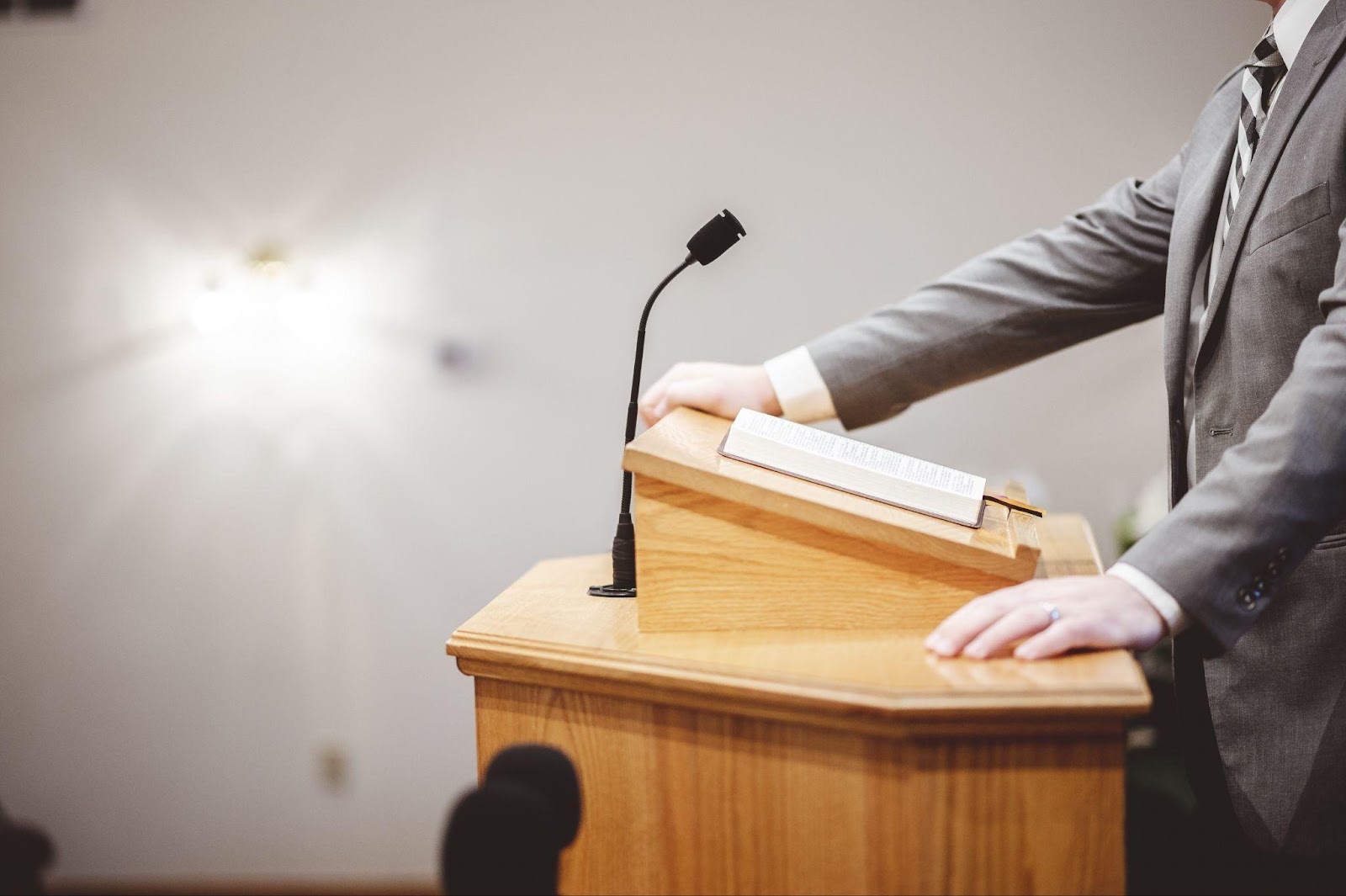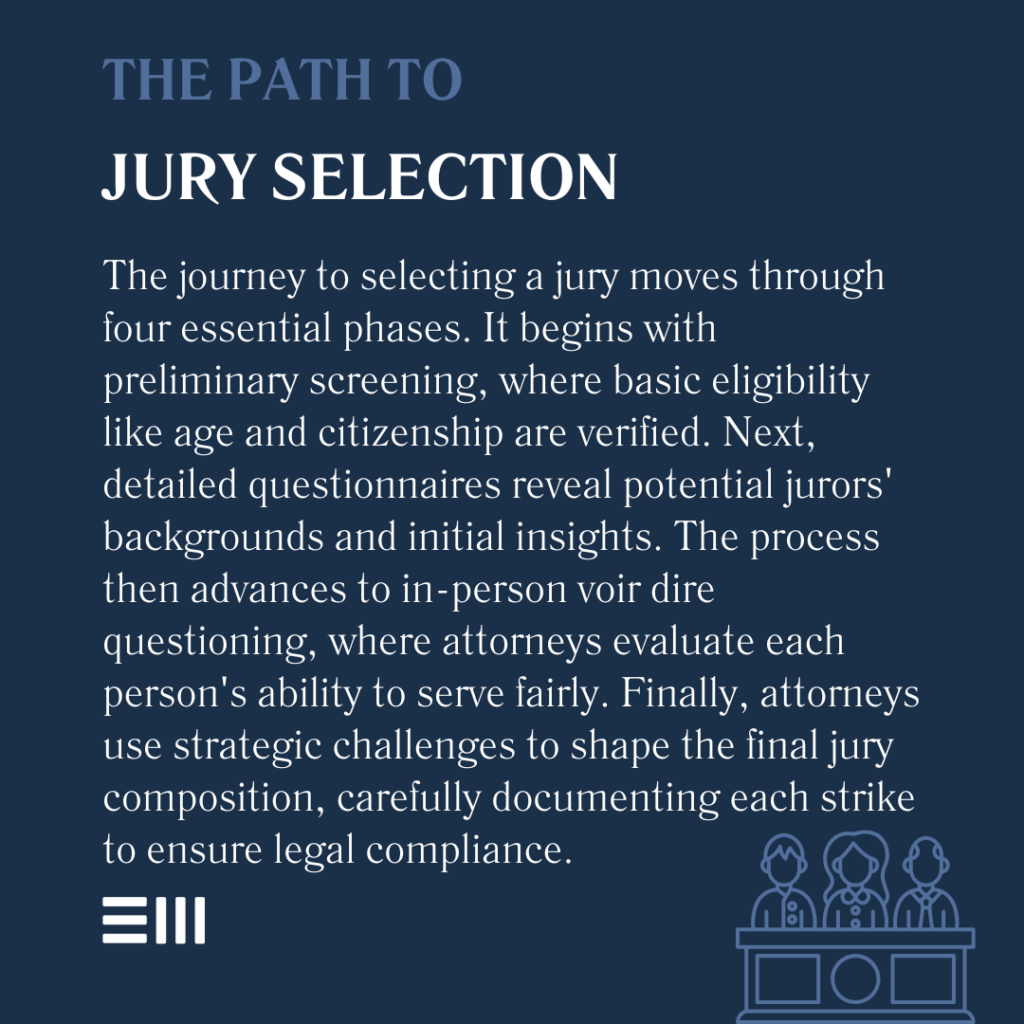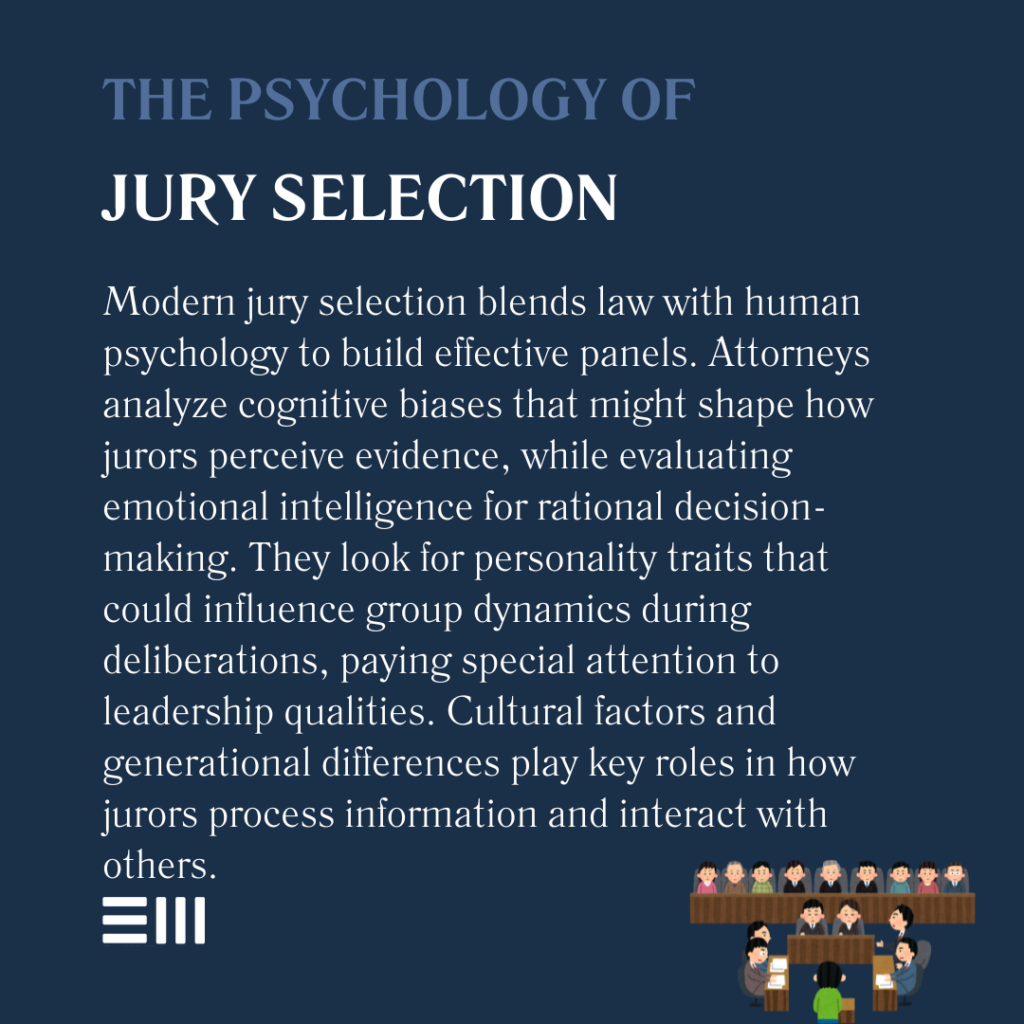
Studies show that 85% of cases are won or lost during jury selection, making it perhaps the most pivotal moment of any trial.
In courtrooms across Alabama, attorneys spend countless hours analyzing potential jurors‘ backgrounds, beliefs, and biases to build the strongest possible panel for their clients.
Understanding Jury Selection in Alabama Courts
The journey from a jury summons to final jury selection involves multiple carefully orchestrated steps designed to create an impartial panel.
Modern jury selection techniques combine traditional courtroom procedures with advanced demographic analysis and psychological insights.
Key components of the jury selection process include:
- Preliminary qualification screening ensures potential jurors meet basic eligibility requirements like age, citizenship, and absence of felony convictions;
- Distribution and review of detailed juror questionnaires that provide initial insights into backgrounds and potential biases;
- In-person questioning during voir dire to evaluate jurors’ ability to serve fairly and impartially; and
- Strategic use of peremptory challenges and challenges for cause to shape the final jury composition.
The preliminary screening phase helps create an initial qualified jury pool that will move forward to detailed questioning and evaluation.

The Art and Science of Voir Dire
Voir dire represents a critical opportunity to identify jurors whose experiences, beliefs, or biases could impact their ability to render a fair verdict. Successful voir dire requires careful preparation and strategic questioning techniques.
Effective voir dire strategies include:
- Developing open-ended questions that encourage detailed responses rather than simple yes/no answers;
- Creating a comfortable environment where potential jurors feel safe sharing honest opinions;
- Paying close attention to non-verbal cues and body language that may reveal hidden biases;
- Using appropriate follow-up questions to explore concerning responses in greater detail; and
- Maintaining detailed notes on each juror’s responses to inform challenge decisions.
The information gathered during voir dire provides crucial insights that guide attorneys in exercising their peremptory challenges and challenges for cause effectively.
Strategic Use of Jury Challenges
Attorneys must carefully weigh their limited number of challenges to maximize their impact on jury composition. Understanding when and how to exercise these challenges can significantly influence the trial’s outcome.
Important considerations when exercising challenges include:
- Evaluating whether potential bias rises to the level required for a challenge for cause;
- Strategically using peremptory challenges to remove concerning jurors who cannot be struck for cause;
- Maintaining detailed documentation to support challenges and defend against Batson claims;
- Considering the overall jury composition when deciding which potential jurors to challenge; and
- Preserving challenges for truly problematic jurors rather than using them too early.
A proper challenge strategy requires balancing multiple factors while working within the constraints of available challenges.
Social Media and Modern Jury Selection
The digital age has transformed jury selection, introducing new complexities and opportunities in evaluating potential jurors.
Social media footprints and online presence have become valuable sources of insight during the selection process.
Key aspects of modern jury selection include:
- Conducting permissible social media research on potential jurors to identify potential biases or conflicts;
- Evaluating jurors’ digital literacy and reliance on various information sources;
- Assessing potential jurors’ ability to follow instructions regarding social media use during trial;
- Understanding how different generations consume and process information;
- Identifying potential jurors who may have difficulty disconnecting from digital devices during trial;
- Screening for exposure to case-related information through social media channels;
- Evaluating potential jurors’ online behavior patterns and digital footprint; and
- Considering privacy concerns and ethical boundaries in social media screening.
The integration of digital research tools has added new dimensions to traditional jury selection methods, requiring a careful balance between information gathering and privacy concerns.
Psychological Factors in Jury Selection
Understanding the psychological elements that influence juror decision-making helps attorneys make more informed selections. Modern jury selection incorporates various psychological principles and assessment techniques.
Critical psychological considerations include:
- Analyzing cognitive biases that might affect juror perception of evidence;
- Evaluating emotional intelligence and capacity for rational decision-making;
- Assessing personality traits that might influence group dynamics during deliberations;
- Understanding generational differences in attitudes and beliefs;
- Identifying potential leadership qualities among prospective jurors;
- Evaluating capacity for processing complex technical or scientific evidence;
- Assessing ability to maintain attention during lengthy proceedings; and
- Understanding cultural factors that might influence juror perspectives.
These psychological insights help attorneys build more effective jury selection strategies and anticipate potential deliberation dynamics.

Common Questions About Jury Selection and Voir Dire
The complexities of jury selection often raise important questions for both attorneys and clients.
Below are detailed answers to frequently asked questions about the process.
What Factors Disqualify Potential Jurors?
Beyond basic eligibility requirements, potential jurors may be disqualified for various reasons, including criminal history, personal relationships with parties involved, demonstrated bias, or inability to serve due to medical or financial hardship.
How Are Alternate Jurors Selected?
Alternate jurors undergo the same selection process as regular jurors and must meet identical qualifications. They’re typically selected after the main jury panel to ensure consistent evaluation criteria.
What Role Does Demographics Play in Selection?
While demographics can provide useful insights, selection decisions must be based on legitimate, non-discriminatory factors. Courts carefully scrutinize any patterns suggesting discrimination in jury selection.
How Should Attorneys Prepare for Voir Dire?
Preparation should include developing case-specific questions, reviewing juror questionnaires, researching local jury pools, and creating clear criteria for evaluating potential jurors.
Special Considerations for Complex Cases
High-profile or technically complex cases require additional considerations during jury selection. These cases often present unique challenges in identifying qualified jurors.
Important factors include:
- Evaluating potential jurors’ ability to understand complex technical evidence;
- Assessing exposure to pretrial publicity and media coverage;
- Identifying specialized knowledge or experience relevant to case issues;
- Considering the length of trial and jurors’ ability to serve extended periods;
- Evaluating potential jurors’ capacity to separate personal opinions from evidence; and
- Assessing ability to maintain confidentiality in high-profile matters.
These considerations help ensure selected jurors can effectively evaluate complex evidence and maintain impartiality throughout lengthy proceedings.
Take Action Today
Our experienced trial team brings decades of jury selection expertise to every case. We understand the nuances of Alabama courts and how to build effective jury panels that serve our clients’ interests.
Contact Baxley Maniscalco to schedule a consultation and learn how our strategic approach to jury selection can strengthen your case.
Let us help you navigate this critical phase of trial preparation with confidence and precision.
Can't find what you're looking for? Search our site below.










